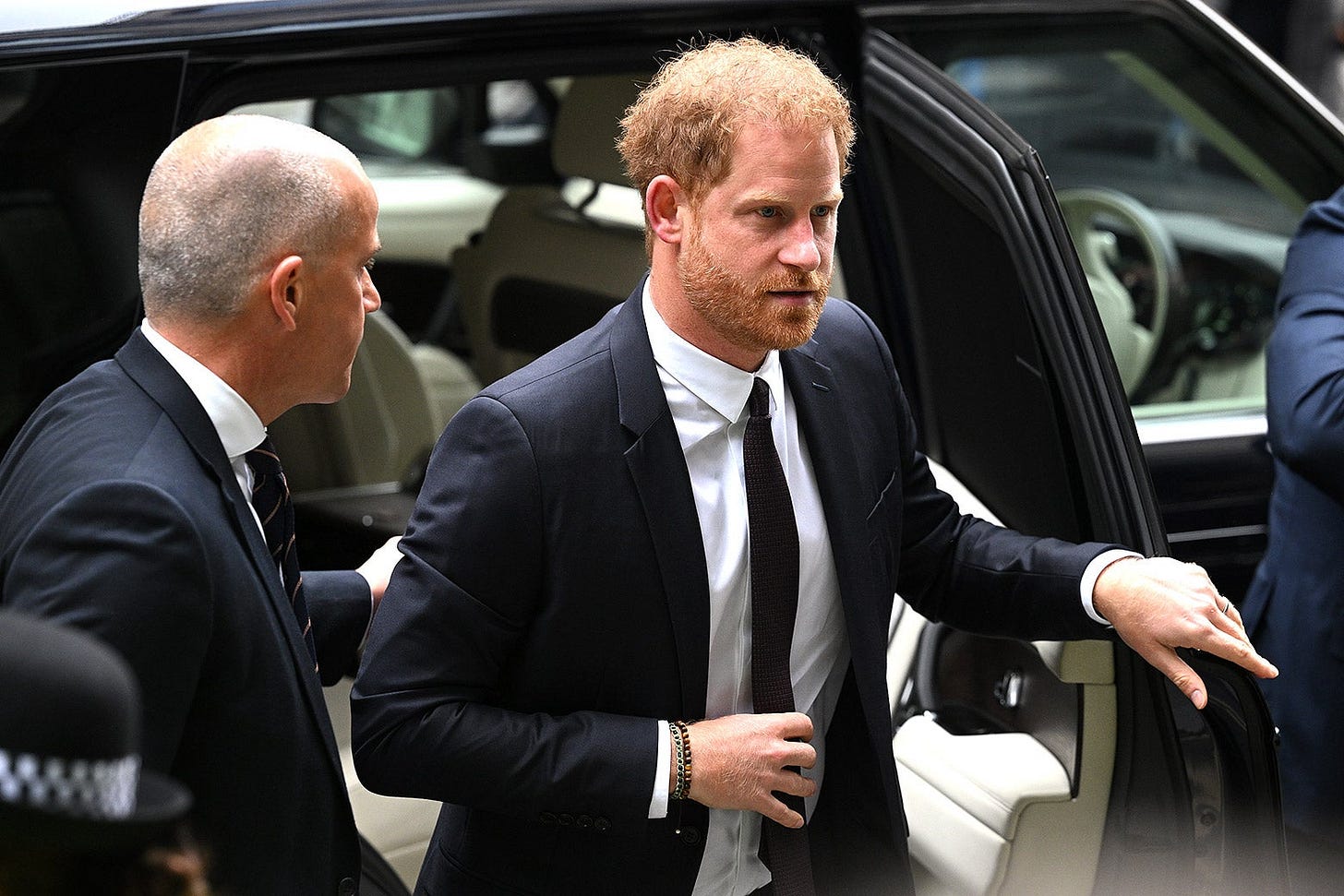A Legal Loss, A Family Rift: Prince Harry’s Struggle Between Justice and Loyalty
Harry’s quest for safety and family continues to clash with the Firm's worldview
Prince Harry’s recent legal defeat concerning his security arrangements is more than just a courtroom loss…it’s a pivotal moment in history that underscores the stark divide between his personal desires and the unyielding nature of the royal institution. While Harry’s quest for safety and fairness continues to clash with institutional logic, the deeper, more personal battle with his family looms large.
This isn’t just about the right to protection; it’s about whether Harry can ever reconcile his emotional need for safety and belonging with the monarchy’s rigid demands of loyalty.
Let’s back up and examine Prince Harry’s court case over his security, which has now wrapped up.
What Was Denied?
Back in 2020 (when Prince Harry and Meghan, Duchess of Sussex, stepped back from official royal duties) a committee called the Royal and VIP Executive Committee (RAVEC) concluded that because Prince Harry was going to be an infrequent visitor to the UK, his security needs would be assessed on a case by case basis. While Prince Harry can still receive police protection while in the UK, it is not automatic and he has to give plenty of notice of visits —which, he has argued, could expose him and his family to greater danger.
Harry has long sought the reinstatement of automatic, taxpayer-funded police protection, but RAVEC’s decision to deny this request and replace it with a case-by-case assessment remains unchallenged. The committee’s opinion that such protection was no longer warranted will be allowed to stand, as will the notion of a “bespoke” security arrangement for the Sussexes, requiring a 30-day notice period for assessments on a case-by-case basis.
His lawyers had argued that he had been "singled out" for "inferior treatment", but court rulings have upheld that there had been nothing unlawful about how the decision had been reached. His appeals in the case involved the “intricacies” of how Sir Richard Mottram, who was then the chair of RAVEC, reached the decision to withdraw his protection in 2020.
Harry’s second appeal to overturn this decision was dismissed last week by the Court of Appeal, which ruled that Prince Harry’s “sense of grievance” over how the decision to alter his security was reached did not constitute a basis for a successful appeal.
In a dizzying display of institutional logic, a judge even recognized the argument put forward by Harry’s lawyers that his change in status within the Royal Family did not change the level of risk he faced. However, the court did not ultimately think there was a sufficient reason to reconsider the original decision that had lowered his security.






